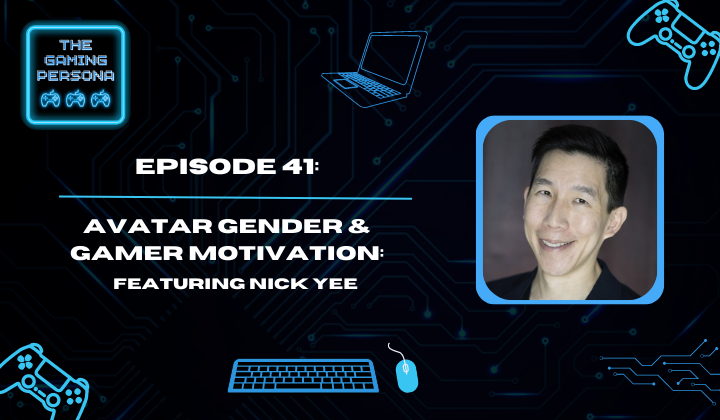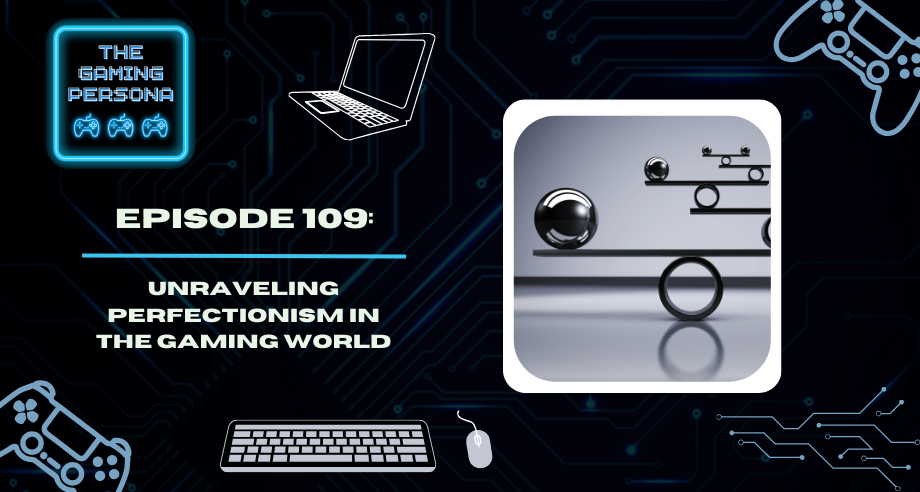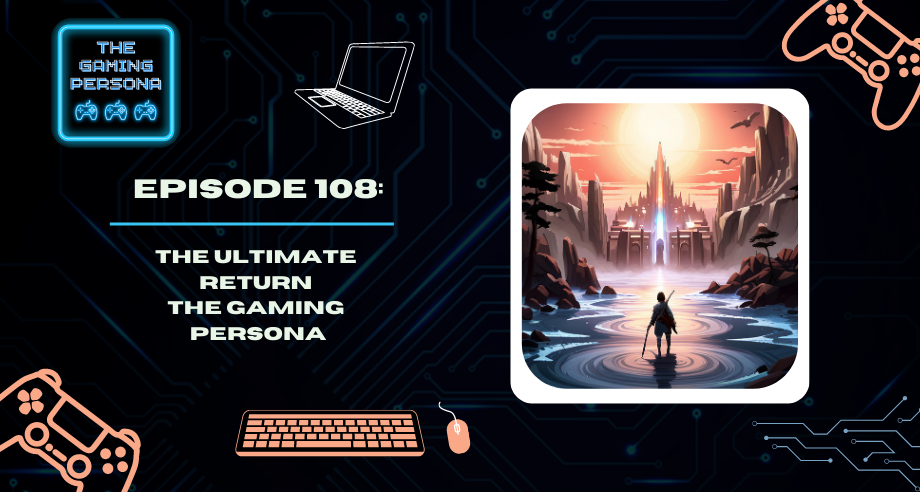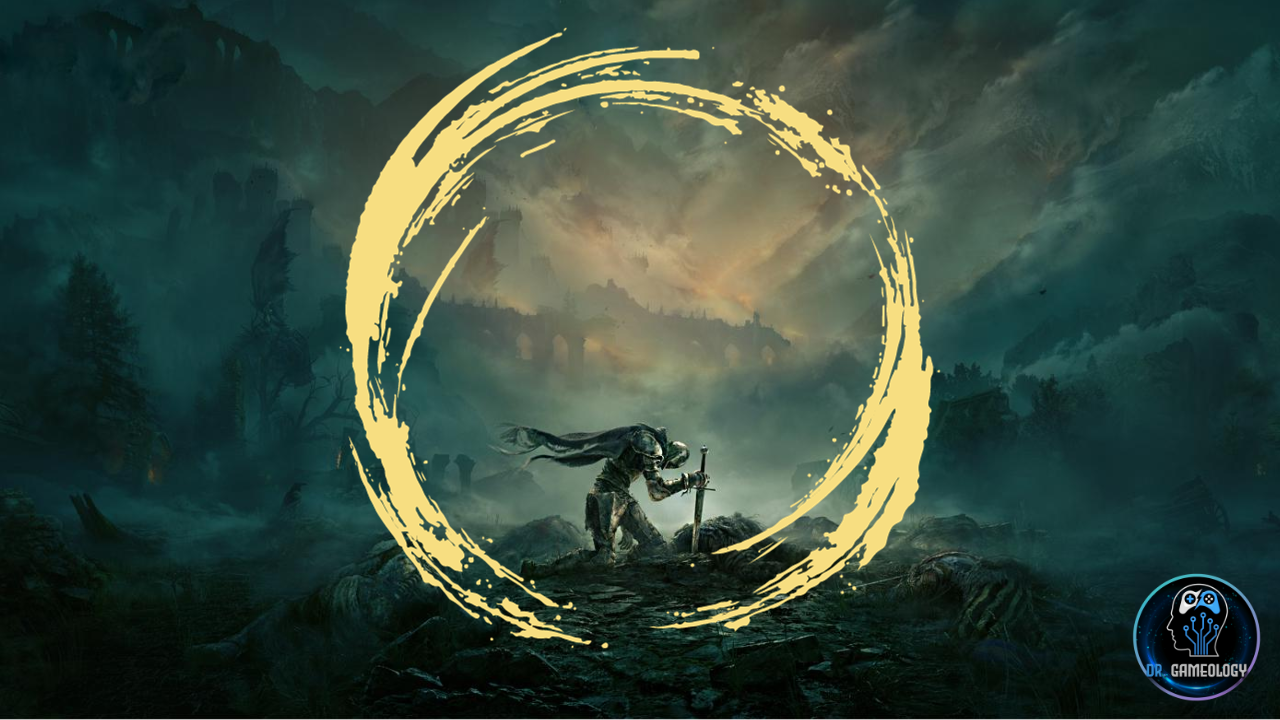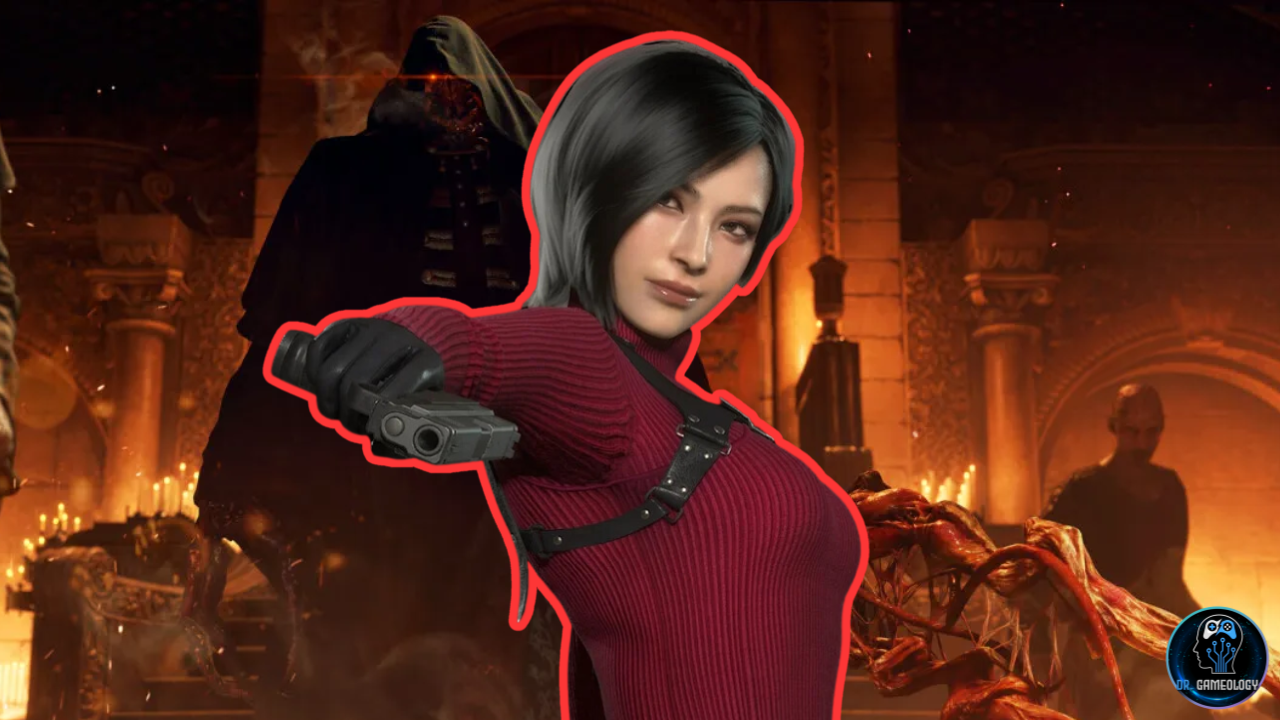Avatar Gender & Gamer Motivation: A Meeting the Mentor Interview with Nick Yee
A New Traveler Approaches on Our Journey! Dr. Gameology and Jenny welcome their first ever guest to the show… Nick Yee from Quantic Foundry!
Nick Yee joins the show to talk about his Gaming Persona, his journey towards becoming a game motivation researcher, and the recent blog post with findings concerning why some people prefer different gender selections in games featuring character creation.
Gaming profiles as discussed on the show can be completed at Quantic Foundry
Download & Listen to this episode of The Gaming Persona Here:
Gaming Library:
World of Warcraft, Star Wars: The Old Republic, Final Fantasy XIV Online, Sea of Thieves
Meeting The Mentor: Nick Yee Interview
Jenny, we have talked about, “We should have ‘so-and-so’ or ‘this-and-that’ or ‘whoever’ join us on the show.”
I’ve always been like, “In the future, we can do that.” Before you know it, the future is the present and we’ve done 40 episodes of the show. We have been talking about this for about 30 episodes. Honestly, Jenny, I want the hype to be real for everyone reading right now. If you’ve read five episodes at random of our show, you have read the name of the person who is our first guest. Jenny, I want to share that if you had asked me at the beginning of the show, “Who is the dream guest that we have to get on the show someday when our podcast is a real thing?”
I wouldn’t even have had to ask. I would have known.
It’s so obvious. I remember the first time I read a journal article by our guest. I’m going to leave his name anonymous because I want to amp up the anticipation before we pull back the hood and show everyone who’s hanging out with us. I remember reading this and saying what he did with World of Warcraft I want to do with a Star Wars game.
I’m saying “a Star Wars game” because the game I did this with didn’t exist for people to play when I saw this article. And then it got announced, and I was like, “That’s it.” Daniel Kaufmann, (the future person known as Dr. Gameology), is going to do that with Star Wars: The Old Republic.
Avatar Gender: The Ordinary World
We’re going to do our ordinary world where we share everyday life through our games. Let’s do our ordinary world before we reveal who the new challenger, traveler, collaborator, or mentor is. How’s your week in the world of gaming, Jenny?
I have played so much of Final Fantasy.
Two episodes in a row. In fact, when I was editing it, I heard you say that.
It’s been fun. I have some new friends in the game. I’ve finally convinced some of my Sea of Thieves crew to join the World of Final Fantasy XIV. So far, they love it and one of them subscribed. I got the friend recruit bonus from him and he’s sticking around, so I’m excited. I did some stuff with him and my other friend. We played together many times. One weekend, we ground some primal extremes for these mounts that we wanted. In the last episode, I declared that we were the RNG gods. I don’t remember exactly what happened.
I replied that the RNG gods are dead and they never existed.
I was steadfast in my belief that I was an RNG god. There are six different raids that you need to beat in this particular challenge. From the boss in that raid, there’s a percent chance that it will drop a special mount that you can ride. These particular mounts are all horses and they all signify different elements. We were going through those, and out of the six raids, I got 5 out of the 6 horse mounts on the first try. That is so unheard of. It’s unbelievably unheard of. I don’t know what the chance drops for those mounts are, but it’s definitely not 100% for the first try that you get them. My idea that I am the RNG God still stands, and I will take that title.
Just to comment on that, I have killed a few of them twenty times without getting the horse. I will maintain my blasphemous stance on this RNG-God BS. If you can hear the idea that anyone can get that lock, you remember, Jenny, the winning phase is the beginning. Prison is the end. Watch it.
I offered my magic presence in the raid for anybody else that wanted to grind for them and it didn’t seem to work for anyone else.
That’s the thing. You have to go in thinking only about yourself. If you’re trying to be helpful or altruistic, the game senses that and makes it demoralizing. I want to comment about the friends you brought into the Discord and into the game. I didn’t realize they were from Sea of Thieves. I got to hang out with one of them multiple times over one weekend. I can definitely see that they were bringing that Sea of Thieves pirate energy with them.
The sandbox mentality we create in our own game.
It was the way he talked about video games. I’m like, “I’m all pragmatic, checklist-focused, and efficient,” and he seems like a barrel of monkeys to hang out with. He’s fun and free-flowing everywhere. I’m like, “Can we accomplish a goal right now?” It was a neat observation. I play in a specific way and to see different motivations and hang out with them is fun for me.
If that sounded negative, I didn’t mean it that way. I was saying it more as an observer, like, “This is a new thing that I don’t think about often.” I’m not surprised that some of your friends would subscribe. After all, Final Fantasy XIV is the world’s most critically acclaimed MMORPG with an expanded free trial, which you can play through the entirety of Realm Reborn, and the award-winning Heavensward expansion up to level 60 for free with unlimited playtime.
I’m so proud of you for getting that on this episode
I thought I would help because the rest of the world is making it much more difficult to sign into the game. I might as well add a drop in the bucket that ripples out throughout the entire universe that causes a few more people to get on the Crystal Data Center / Goblin Server and join the Dr. Gameology fun.
It’s been fun getting more into the game and being able to play more often and all of that. I had this experience that I wanted to share. On one of the nights we were playing, I got introduced to our guild house. For people who don’t know, in this game, real estate is similar to real estate in the real world. It’s hard to get prime locations. It’s expensive and all of that. Apparently, our guild house is right on the water on this beach and it’s so beautiful. I had never been there in the however many months I’ve been playing.
It’s also next to the market board, which is way more important than the beach from a utility perspective.
I didn’t even know that was a thing across all houses.
I thought it was a fun difference in the way we think about the guild house.
What I love about the guild is that I get to go on the beach and float in the water and it’s so peaceful. I learned how to float in the ocean. It was fun and we were all floating. One of the nights that we were playing, right before I was getting off, I was like, “This is such a peaceful part of this game.” The environment is so beautiful. It was nighttime, the sky was gorgeous and I was floating around with my friends. That’s stuck in my mind and then the following day, in real life, it was a rough day for me mental health-wise, and emotionally.
First, I went to the grocery store to see if I could buy some healthy foods to eat. That’s something that I try to do when I’m feeling down. I found a dinosaur, but it was on a watermelon. I don’t ever buy watermelons, but I found a watermelon that had a marking on it that looked like a dinosaur. This seems so silly, weird, and not important. To me, that watermelon with the dinosaurs gave me so much joy and so much happiness because it was clearly a dinosaur. I bought the watermelon and went home.
I reached out to some people in my life and checked in with some people. I was like, “Do you know what I want to do right now? I want to be floating somewhere.” I called my sister because she has a pool and I was like, “I am feeling some feelings today. I would love to float in your pool. Can we hang out?” I did and went over to her house. I brought the dinosaur watermelon over. I had such a lovely day. I thought it was something of note because I don’t typically take moments in-game and bring them into my real life, but he did this time and it was so helpful to me.
That was interesting, Jenny, because usually when I’m explaining things like that to people, I’m going the other direction that you take something from out here and you manifest it in the game for your self-care. To reverse that and to say that it still works is mind-blowing. It’s captivating. I love it. It’s such a Gaming Persona idea.
It was fun. I took a photo of the dinosaur because I was so obsessed with it. I’ll post a photo in your discord. I’ll caption it something to make people read this episode.
We need to force everyone in our life to read the episode. I can’t even tell you how many times I tell people of our show who are all about supporting me in these other areas and they’re like, “I’ve never gotten around to listening to it.”
Specific people listen to podcasts. Not everyone listens to podcasts, so I get that.
Jenny, I had a cool idea and if I put it in the episode right now, we’re going to have to do it. I created a separate stream recording window in Streamlabs where my webcam is off and it’s the game full screen. Nothing else can pop up. We should do three Duty Finder missions every week. We can start at one and not be too ambitious.
We should take that footage and put The Gaming Persona logo on the top left corner and create a YouTube version of our podcast. You watch us play and the audio is not the game. It’s our episode so that people have something to watch that is also our connected through video games. It doesn’t even have to always be Final Fantasy XIV.
That would be fun because I want to have a bigger presence on YouTube. Honestly, everything about how YouTube does things is more in line than Twitch. The Doomsday Clock might already be ticking on me wanting to do what I do on Twitch because there are a lot of limitations in their terms of service that my desire to comply with them doesn’t help me be successful in any way whatsoever. That’s a whole other podcast episode. We can do membership.
I’m going to table several things from our ordinary world for me, but the one thing that I want to share with our audience is if you have some traveling money and enough courage to brave the airplane world to go somewhere and not worry about COVID-19’s mutations of death. I’m presenting in a Dark Souls Panel at PAX West in Seattle.
The list of people that are involved in that is ridiculously awesome. I love these games because they are super punishing and require a low enough self-esteem that you don’t believe that you deserve to win video games anyway. Also, the ability to perform at a high level with little reaction time as if it’s an instinctual connection between you and the game. These are the games that got me through grad school. I have thought many times about whether I would have finished my PhD if I had never had the time inside Demon Souls, Dark Souls, and some other games.
There are some great people on the panel with me. It’s led by Dr. Ryan Kelly, Dr. Amelia Herbst from G33ks Like US, Dr. Emery Daniels from Appalachian State University, Dr. Jared Kilmer from Game to Grow, and me from The Gaming Persona. It was nice of them to include me and it happened because of a random Twitter post. I was like, “I would love to do that. Are we doing it?” They decided to do it.
Do you know if it would be streamed anywhere?
I don’t know that. I don’t know if there’s a virtual component to PAX West or not.
There should be because of COVID.
I’m looking it up and it doesn’t appear that there is a virtual registration. If you need to pick what day you’re coming, and you specifically wanted to see me, I’m on the Friday presentation list. They do have badges still available for Friday only if people need to fly out to Seattle to be a part of that. Jenny, are you ready to go meet The Mentor?
I am.
There are so many other things you’ve done from your connections with Palo Alto Research Center and Ubisoft Gaming Behavior Research Group. I don’t know exactly everything you want me to list, but it’s impressive. It’s an honor to have you. If everyone feels like Dr. Gameology is geeking out, you’re absolutely correct.
We wanted to ask you on the show because, at the end of the last episode, I had mentioned to Jenny that I wanted to do an episode about my Final Fantasy XIV character being a female and my second character. I tried to play XIV more than a year and a half ago and created a male character, but it didn’t grab me. Recreating a character from scratch and going the female route changed it. You published some more data about this thing. I thought it would be exciting to talk with you about that.
What was the gender of your characters before that?
I had usually been the player that creates characters that are me but in that game world but in Final Fantasy XIV, that didn’t work. It felt like the world that was it didn’t keep me invested in the character the way it did in Star Wars: The Old Republic. That was the original direction and then we started to see your data charts in the blog post that accompanied it. I am excited to talk with you. We can put me on the couch if we want to but in broad terms, what that research implies about the game process where we get to create our avatar to invest in. I have a cohost. Jenny, do you have any initial interest here?
I’m so excited to have you on. Daniel’s been geeking out over you since I’ve known him and it’s been many years.
When your article came out and he told me that it came out, the timing was so weird, cosmic, and strange. He told me that he reached out to you and I was like, “That would be amazing.” Thank you for coming and I’m excited to jump into this conversation.
Nick, I want to start out and talk with you. Are you playing games right now? How are you connecting with this vast number of universes that we get to be a part of?
I’ve been playing lots of WoW. I got back at the tail end of the BFA expansion and then I’ve been playing a lot in Shadowlands because at the tail end of the BFA. I had never raided before because it was always too much for me, the time commitment, the social commitment, and the social drama. I never quite found the right groups.
I was pugging it and then I found this group of chill people. A lot of them are working full-time. Their raid lead is apparently to a 3 or 4-year-old. He’s super chill about the raiding. I fell in with that guild, so I’ve been doing a lot of raiding in Shadowlands with them every weekend. I’ve been playing lots of WoW. In between that, I play Civilization VI, which is my go-to game. I try out a lot of games on Steam that come out to keep up to date with what’s happening.
Are there any lesser-known titles on Steam to have been unexpected gems for you?
I’m looking forward to Humankind because everyone’s wondering if it’s going to be a great turn-based empire game that’s different from Civ VI. That’s different enough that it has its own life and play pattern. I’m looking forward to playing Humankind and trying that out, but there’s not been another game I’ve tried out.
I grew up in Hong Kong, so I played a lot of quirky Japanese Taiwanese games as I was growing up. I always keep tabs on Japanese franchises. In Japanese franchises, there are a lot of vehicle simulation games that are different from Western vehicle simulation games. The Japanese vehicle simulation games tend to be more logistics-oriented. They have one called I am an Air Traffic Controller. That’s much about moving planes in the airport on a strict logistical timestream like planes landing.
People seem to be playing games that reinforce their personalities and who they are, which makes a lot of sense. Click To TweetIt’s not about piloting or driving the plane as much as making sure that no planes crash in the complexity of the schedule of the airport. There’s a game, Densha de Go! It’s a train driving simulator where the focus is certainly the Western train simulators. It’s very much modeling the high realism of being in the cabin of the train and doing the operations where you’re unloading and connecting with cargo and those operations. Japanese simulations are much more about the precision of stopping your train within three meters of the platform and arriving within five seconds. It’s very Japanese.
Densha de Go! came out on the Switch. I’ve been playing a bit of that. I tried all the quirky games like on the borders of mainstream gaming to make sure I’m covering my bases. I’m trying the new version of Densha de Go! on Switch, so that was fun. That gives you a sense of the core games I’m involved with and some of the outlier games I dabble in.
That sounds so interesting to me, because as you’re describing them. I haven’t played these games, but I love the concept of gamification, especially with my students as a grad school professor. I feel like they would complete their tasks better in higher quality and closer to being on time if they gamified their week a little bit better. In the air traffic control one, I imagine that you develop an awareness of all the efforts of different kinds of people so you can have a nice little stroll through the airport and fly across the country if you play a game like this.
I’m one of those people who does project management. By nature, it’s my personality. I’m so detail-oriented, and I can’t help but worry about things and plan things out. I load up the game and it’s this 30-minute stretch. Every mission is a 30 to 40-minute stretch. You cannot save in-betweens. If you fail at minute 35, you have to redo the whole stage over. It’s so different from the accessibility to levels of gameplay.
It’s this notion of, you’re starting with these ten planes, and there’s a plane that’s starting to load up that you know has to take off in fifteen minutes as all these other planes are landing and managing that flow, which is so much in my head. One of the early articles that we did in Quantic Foundry was so much when people play games. When you look at the data as a whole, people are playing out their personalities.
I’m an analytic person and I like analytic games like Civilization VI and this logistics management and project management game. By and large, that seems to be the connection. People who are more extroverted tend to be the ones who enjoy more of the social aspects of games more. They’re more competitive and more likely to be in raiding guilds.
Early on, when I started studying EverQuest and MMOs, it now seems so strange. People had concerns about addiction, aggression, and the violent side of things. It’s like, “When people play MMOs are they losing their personalities in this fantasy realm? Isn’t that a danger, Nick?” Those are the kinds of questions that I was getting early on.
They’re like, “Don’t people lose themselves when they play as a Night Elf and forget who they are?” The data turned out to be the exact opposite. It’s the same way that we choose news sources that confirm our biases, perceptions, and beliefs about the world. For the most part, people seem to be playing games that reinforce their personalities and who they are, which makes a lot of sense when you say it out loud, but it was not a common-sense position years back.
That’s interesting because I came into the conference presentation scene after some of that bias started to unravel. What tends to happen with me is they bring me in to talk about things like gambling addiction or the dangers of escape motivation. They get this whole other different presentation. I spend 90% of the presentation talking about how people’s personalities manifest and how video games lead to a path of fulfillment for those traits inside of them in a way that real life doesn’t. Instead of being upset in the games, I try to encourage people to push reality to do better.
That was very much one of the points that I was pushing early on. I was trying to reframe the addiction topic by saying, “Shouldn’t we be worried about all the dead-end jobs?” People have to work at Walmart or other places. I don’t want to single Walmart out. We’re not questioning enough about why life is not fulfilling for such a broad swath of people that they’re able to find this satisfaction in a simplistic reward system. Why is it that we can’t do better in the real world as well?
Jenny and I both started working in a place that, financially, would look like a meaningful existence, but it wasn’t. This is a concept of purpose and having a value in what you do day-to-day. I got to watch Jenny transform when she started her photography business and I founded Area of Effect Counseling. Over the years, I’ve still been transforming to the point where now there’s this podcast and all this other stuff. That allows for, “Yes, I’m a counselor, but that counseling is also utilizing that fun aspect of video games at every possible moment.”
It’s found a network of people that want to work with me either receive services or collaborate on different programming. That speaks to the power of video games as a cultural concept. It is a group of people with connectivity between each other based on genres or franchises or all these other things. Jenny, do you have anything you’d like to add about photography and finding your purpose?
I am a photographer, so I was able to pull from my love of video games and bring it into the photography world. That is what propelled me to become successful as a photographer because it is part of who I am. It’s something that I love to do. I am a social gamer. I love to game because I love to spend time with my friends and that’s a positive thing.

I brought that into my business, so now the people who are attracted to having me as their photographer also like video games. They enjoy different types of fandoms and things like that. Framing it in that way is important. The work that you both have done and continue to do is special and I’m honored to be here.
Nick, I want to ask you, since you’ve been researching games, you mentioned that you’re playing World of Warcraft. I know that my introduction to you was reading a paper on World of Warcraft where there was one sentence at the end that created this amazing opening for me to do my dissertation. You commented that if you look at all the data on how people play, their personality is more fully manifested in a measurable way in a video game than it could be in a psychological assessment.
That is a paraphrase, and probably a grandiose one at that, but I highlighted that sentence. I wrote 100 words of reflection on it. I was like, “I want to do Myers Briggs Type Indicator with the game that I play.” I want to ask you, how has researching these things changed your game selection in the types of things you’re interested in playing?
The one thing I want to touch on is that paraphrase. That paraphrase comes from my undergrad psychology adviser Doug Davis. He was the personality psychologist in our department of experimental lab-based oriented researchers. He was the odd one out because he talked about Freud and Jung and did personality assessments. It’s more observational field study research. It’s correlational more than lab-based research. That came from him.
EverQuest had come out and this was back in ’98, ‘99 and he was watching us play EverQuest. He had made this comment that the amount of data is like a goldmine of personality information that you’re able to gather. That angered my interest in the field as well. I was fascinated with that question and that percolates through even my work of understanding what meaningful ways to differentiate gamers are.
In a sense, the Gaming Motivation Model that we do at Quantic Foundry is like the big five personality trait assessment, but within the domain of gaming motivation. So much of my work was anchored with some of Doug’s insights early on into what are interesting intersections here between personality, technology, social and personality psychology.
To your question, specifically, after being in the field for so long, a lot of times when I’m playing games like Civilization VI and they introduced their vampires and there’s zombie mode, I look at that in the back of my head and I’m like, “I wonder what the market research that they did.” “What’s the playtesting that led them to green lighting this?”
A lot of times, when I look at games, I take on the lens of imagining the back end turf wars, the psychological, the playtesting, or the political discussion that they had in letting some of those come forth. It’s looking at games and saying, “It’s interesting that they feature it like that,” not in that essentially, but in a game in general. It’s interesting that this feature is the way it is at launch. I wonder whether they had to prioritize other features and mechanics. So much of my games, I have this bigger holistic lens of not just as a player, but I wonder what went on in the back room.
It’s interesting that you’d say that, Nick, because of my research and the amount of growth that I had in the Star Wars: The Old Republic community and while I was still playing, I was added to their content creator team. As soon as that happened, I started to notice the prioritization of what’s the balance between casual PvE versus PvP, hardcore ranked PvP versus the nightmare, high mastery level kinds of raiding. That’s what I love. I like losing two bosses a lot. If you watch my stream, it’s not apparent, but I’m an INTJ and you have to look through the facial expression and realize that this dead, defeated look on my face is when I’m the most alive.
Behind the pain and the agony, there’s joy.
I also experienced this deep frustration with Bioware over having to look at their community and how it’s composed and prioritizing, different features that didn’t help me out at all with my enjoyment. It was an easy shift for me to try Final Fantasy XIV because I’ve loved everything about that franchise since VII came out in my adolescence. That’s what I’m playing now. That also directly connects with how the research role has shifted how I look at games too dramatically to where I need to have a weekly podcast with Jenny to break down something academic to justify why I’m playing games the way that I do.
We talked a little bit about this before the show, but I would love to talk about how you began with this idea to study game players and motivations.
I touched on my undergrad advisor Doug Davis. It was my junior year, and these two seniors, a year ahead of me, were comparing the personality differences of gamers from three different genres. At that point, they picked an FPS and RTS and an MMO. EverQuest had come up a year ago and none of us had played it at that point.
I was a lab tech so I was not involved in their study directly, but because they wanted to study the MMO, Doug Davis went and got a copy of EverQuest to play so that they could ask sensible, intelligible questions of this audience. I was allowed, so I installed the game for them and then we all tried it and played the game, the three of us, and I was the only one who liked it. Even though it wasn’t my project at all, I was playing EverQuest. I was like, “This is a lot of fun.” I got sucked into EverQuest.
In conducting your game surveys, you should get both quantitative and qualitative data. Click To TweetA semester later, I proposed an independent study with Doug to do some of the early survey work. This was before the days of SurveyMonkey. Even the idea of doing web surveys was new. It was that long ago. I started doing the surveys, which connected the gender-bending topic because that was a question I asked early on.
It was a much more obvious question to ask in MMOs because you had not only the choice with all the different races but changing taller avatars, shorter avatars, male and female gender. It was a much more obvious question to ask in that context and then send that data back, but it was a lot of fun. I was so early in doing that and developing this community of people who were taking Nick Yee surveys of EverQuest. I ran these surveys every two months and did this continuous data collection.
I did surveys with stereotypically psych questions like, “Are there issues with problematic usage and people spending too much time playing?” It’s all the way to, “Have you developed a romantic relationship in EverQuest? What was that like? How did that relationship start? Had you met this person in real life first face to face, do you think you would have pursued a relationship with them?” Most of them said no.
It’s all these interesting questions that I was poking around with and getting both quantitative and qualitative data on. That was a lot of fun and that morphed into my senior dissertation. I started a job after undergrad with Accenture in Chicago but kept doing the surveys on his side because I had all the tech and the infrastructure to do these surveys. A year or a year and a half into that job, I was like, “If I’m still doing all these surveys and publishing these blog articles while I’m working full time, maybe I should go to grad school for this?”
At that time, there wasn’t a field of game research yet, so I was making these difficult decisions like, “Do I go into psych? Do I go into communication? Does HCI make sense?” Finding the right advisor was difficult because no one was studying games at this point beyond the violence and addiction angle and I didn’t want to do that. I was fascinated by the personality side. What are the different ways that people are playing games? The central tension was from the traditional psych perspective. They were only interested in gaming as to how gaming potentially impacts people. How does this media affect tradition?
I was interested in gaming as a subculture of the different ways that people make sense of gaming. What are the different ways that people enjoy gaming? It was this tension between what I wanted to do and what the traditional media effects framework was interested in. I found a great program at Stanford in communication.
My advisor, Jeremy Bailenson, was fascinated with VR, so I did a lot of VR work early on, but he was supportive of the gaming stuff. I was interested in World of Warcraft research. That’s how it started. More than twenty years later, here I am, still doing the same stuff for some reason. I’m one of these people who were lucky and fortunate to have found a passion early on and have been able to carry on that trajectory and have it have a developmental career. I look back and I was lucky.
People, who look at my career trajectory, oftentimes think, “How did Nick figure this out in this over twenty-year trajectory?” I have to be honest. A lot of times during those moments and that time, there were lots of periods of doubt where things didn’t quite make sense where I’m like, “Is this what I should be doing?”
For example, when I linked up with Jeremy at Stanford, and so much of my work morphed into VR, “Do I take the VR route or do I stay in the gaming route?” There were all these kinds of interesting decision moments about which direction I should take. Throughout, I kept running into interesting people like Doug Davis in undergrad. I met Nic Ducheneaut, who’s my business partner.
Early on in my graduate career, he hired me as a summer intern at the Palo Alto Research Center. That opened up the direction of big data meets MMOs and the psychology of being able to mine all that data, and what getting server-side data meant in terms of this research. There were a lot of interesting people that I met along the way that shaped that trajectory of starting with survey work, broadening to big data, and working at Ubisoft.
Getting my hands into all the backend server-side data like the behavioral metrics for the big franchises. Starting on our own with Quantic Foundry and generating our own large data set from the gamer motivation profile, and then conducting the research and the more and the much more applied client-side work that we do now of making that transition from academia into industry. It’s been an interesting ride.
When you look at it from a timeline perspective and maybe the butterfly effect of pushing one person into a different hallway changes, you’re doing great things for VR games and stuff like that. We talked about timelines on this show sometimes, between me and Jenny, and how important video games have been to help us get from place to place in our life. To look at a depth of relationship that can happen in an MMO space, one of my cousins married their healer from WoW, which is not unheard of. It’s not like that happens to every single person who wins a dungeon.
You start asking that question and you realize, “That does happen.” Our friendship went from the best person available to talk at work with and then the only person at work that I would want to get a coffee with and now it’s the only person at a past work that I would want to podcast with. Video games have been an important part of our connective tissue, too and it’s neat to hear you share with us how that idea started to form. All the different academic people who decide to stop being so serious to let you do something neat with the whole premise of academia.
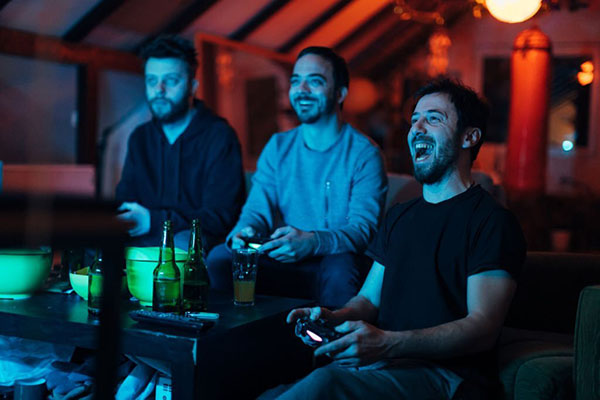
There was this juncture in the early 2000s, early WoW, Star Wars Galaxy, City of Heroes era, where a bunch of academics and different fields formed the blog, Terra Nova. It was folks like Constance Steinkuehler, Dan Hunter, a lawyer, Edward Castronova, an economist, I was a psychologist, and TL Taylor, a cultural sociologist.
We’re all of us from different fields struggling with this issue of how do we gain credibility? How do we do the work we want to do, despite the constraints in our own respective fields? We were coming together and creating these workshops, these blog posts, and this community. It was an interesting time.
In most academic training, you’re so siloed within your own field that you’re never talking to people outside your field or even across methodologies. It was such an interesting time. There are all these interesting moments in that trajectory. Early on in the 2000s, so much of the existential question was, “How do we survive in our own fields and boost each other?”
Being able to point to and say, “It’s okay to talk about games in the field of communication psychology because the lawyers are talking about it and economists are talking about it. If they’re talking about it, why can’t we talk about it?” It was so much of that. That collaborative effort and trying to boost each other. It was a unique and cultural moment. Being immersed and being a part of that was wonderful.
The application of video games to all these other topics leads to creativity. It leads to the audience having provocative thoughts to wrestle with and retain. I’ve often told the story of the reason I started with my interest in cognitive behavioral therapy as a Master’s student. I was not even practicing it. My professor called the approach of how you interact with a client as sometimes it’s okay to be Darth Vader when you’re doing CBT. I was like, “What?”
The follow-up conversation of what he meant there was, you have a purpose. You have figured it out. It’s okay to point out things and get the client to interact with them. It’s not as soft in person because we had talked about being person-centered. In fact, he might have been talking about Rational Emotive Behavior Therapy because we’re learning about both of them at the same time.
That one sentence with no audio or visuals stayed with me and it gave me permission to be like, “I don’t have to be as soft, touchy-feely, and emotion-focused as everyone else in this room.” I can wear the Darth Vader shirt under my button-up shirt and that button-up shirt can be black and I can do our REBT. I try to bring that to my students, too. Is this idea that you are learning to become future counselors, but the things that make you genuinely interesting to be around are a part of that too.
Eventually, you’ll figure out what your voice is. If you are a video game player, there will be elements of the games you’ve played in your voice. That’s something that I strongly believe is part of my identity when I’m at these different conferences, whether for game players or for mental health professionals. I feel that when I’m reading work from people like you and some of the others that have shaped me. Thank you for being a part of that transition because I was an undergrad at the time that you’re talking about. My professor definitely wanted nothing to do with any of this.
Every gamer has that origin story. We all had this thing where we’re figuring out where we fit in this broader landscape and figuring out the value of what we’re doing. All of us in this generation have that origin story in one form or another. It’s like our games research coming out story where we can talk about this commonality.
I would like to switch over to the gender data to make sure that that is, in fact, a part of our episodes. If you have access to our show notes or have looked through them previously, I included screenshots of the two different characters that I created in Final Fantasy XIV just to add some extra context and maybe to visually see them.
The two male character pictures are the same character but in two different levels of development and I deleted him because it didn’t work. The other character, which is female, I have gotten to max level on several different jobs. I’m now doing savage raidings so that I can fulfill my dream of letting a boss kill me repeatedly every Tuesday night. Your data jumped out in a couple of different ways because I’m a cisgender male with a heterosexual orientation playing a female character and playing all ranged magic class. Jenny is playing a female character as well. What species are you, Jenny?
I’m an Elezen.
I’m human. Your character is much taller than mine.
It’s fascinating that there are different ways that people are playing games. Click To TweetI chose to play a tall character. She’s modeled after me. I’m a tall person.
Mine is not a tall person as a human being, much taller than my avatar. That’s the setup. We wanted to have an episode about this and then you published some charts that show how gaming motivation connects with the decision of avatar gender compared to biological gender, which is interesting. What would someone who’s interested in our show, either from the mental health crowd or Final Fantasy XIV, see if this crowd would be interested in? Also, understanding some of the greater importance of these insights.
I’ll pick a couple of the findings and we can talk through them. One thing that’s interesting about this picture, and then we’ll keep looping back onto this point, is how interestingly different avatar design is, especially male avatar design in the Asian gaming space compared to the Western space. The blog post centers on 1 out of 3 men prefer playing a female character. This is on a broad game genre basis, so it’s not only in MMOs.
One out of three men prefers playing a female character. Whereas for women, it’s about 1 out of 10 women. About 9% of women prefer playing a male character. The men who prefer playing a female character are slightly older, about 2 to 3 years older on average. The point that was less picked up, as other people were grappling with the blog post, was interesting.
This pattern that men are about three times more likely to play a female character than women playing a male character is consistent with data that I found in MMOs, EverQuest, City of Heroes, and all those early MMOs more than twenty years ago. Some of the other patterns, like the age effect, so it’s older men who do this, are the same. It’s consistent with what we found in MMOs years ago.
When I saw this, it raised the issue that back when I ran the MMOs surveys, I was always unsure whether the pattern we were seeing was idiosyncratic to MMOs. Early on, it was idiosyncratic to EverQuest, but as I gathered on different MMOs and found the same pattern, I was like, “At the very least, this is MMO why, this pattern.”
Collecting the data again, now, across players from so many different genres, we collected data from about 3,000 players irrespective of the game genre they play and we’re finding the same pattern. There’s some consistency to this effect that whatever is driving this effect has been stable for the past couple of years. It’s got to be some sociological or psychological factor and/or consistency in the way games and avatars are designed to have been consistent in western gaming over the past couple of years. Probably some mixture of the two.
When we were chatting about reasons why people may do this, there were a lot of proposed reasons. For example, from the sociological side, a sensible theory is that our cultures are harsher on men who transgress gender norms than women who do. When you have an anonymous online space, the men are more likely to explore gender identity in safer digital environments than women are. That was one of the sensible research hypotheses early on. When you talk to gamers in blog posts and forums, this issue comes up.
The most common proposed self-explanation of people who play a character of a different gender is that the men who play female characters will say, “If I have to stare at someone’s butt for twenty hours a week, I’d rather be an attractive butt than I’m attracted to.” That’s the most common reason, but I’ve always been hesitant in saying, “Yes, that’s got to be why,” because it’s always been unclear whether that’s men producing a socially acceptable heterosexual answer at the moment.
For example, one of the more extreme interpretations of why this happens is because most game designers are still men and most female avatars and female bodies are typically designed for the male gaze. They’re designed by men, for men to be looked at by men. A more critical hypothesis could be that men are more likely to play female characters as a way of objectifying, controlling, and dominating women’s bodies.
That’s one of the more extreme interpretations of what’s going on. Let’s assume that that’s the case, and then I don’t think that any guy would comment and say, “Yes. I play a female character because I want to dominate women’s bodies.” No guy is going to tell you that. My hesitancy in adopting Butt Theory is because it’s unclear to me whether people are introspective enough to understand the real reason.
We’re in the moment of a web forum where they’re talking about other men. They’re simply producing the most socially acceptable reason for why they would be doing this. It depends on your sense of how truthful and introspective people are about why. In fact, even if men typically do this for the reason of gender exploration, it’s unclear to me that many of them would admit to doing so in a public social setting because all of these transgressions and norms will still come into play.
Going back to the point I was making. What’s super interesting is that whatever explanation or factor is driving this, it has explained a couple of different components, which is why didn’t the men play a female character so much more than the women? Why do the women do it so infrequently in these games? Why is there an age effect? Why are older men slightly more likely to be open to doing it?

One of the better and more holistic explanations, and where I’m landing on, goes back to the male gaze and that men design most avatars. Most female avatars are designed with more attention and detail than male avatars are. One criticism of most male avatars and this is why the Asian MMOs are so interesting from a male avatar design standpoint, is that most western male avatars are designed as if they were an angry brick. This is a great comment on a blog.
All male avatars in western games appear as if they were an angry brick. The spectrum of variation of what a male avatar looks like is stuck in this hyper-masculine thing. Looks like they’re on steroids and have this angry expression on their face. Whereas one interesting juxtaposition with how male avatars are designed in Final Fantasy XIV, for example, is that you have this broader range of more androgynous-looking male avatar designs. They’re tall and live and not just big and bulky. There’s this greater variation in terms of male avatar design.
Going back to the western space, the reason why a lot of the men prefer playing female avatars may simply be that it’s because of who designs avatars. Oftentimes, there’s more attention paid to the design, the number of accessories, the costuming, and hair options for female avatars than for male avatars. That clearly explains both why men do it so often and women don’t do it that much. Women look at these angry bricks, and they’re like, “Why do I want to play an angry brick?”
I can see that being a plausible hypothesis and explanation ties into the consistent way in which avatars have been designed for the past couple of years. This pattern hasn’t changed. Male avatars have always been angry bricks and they still are largely angry bricks. This stable game designed within the Western gaming industry is creating this difference in gender selection and Avatar selections. I can see that being right. To me, that’s the most plausible reason why.
Daniel, you can come comment on this, but I definitely fall in line with what you’re talking about. I get a lot more excited about dressing up my character, the options that I have, and the customizations that are available. It’s a lot more exciting.
Jenny, what is the real end game in Final Fantasy XIV?
Glamorous.
Which gender has better outfits?
The females. If you want to participate in the endgame in this game, you’ve got to listen to what Nick is saying. Be the 1/3 of males that understand how this game works and creates a female character. What are the other 2/3 doing? There are a lot of interesting applications of what you’re talking about. The virtual space is a safe spot to say, “I want to have female traits.”
I don’t think I am an angry brick, Jenny. I’ve been angry, but I’ve ever been an angry brick with gigantic muscles. I’ve never aspired to wear a suit of armor that’s four times bigger than my body. I have wanted to wear Jedi robes. You’re bringing the western audience into it and me thinking about how I do play a male character in Star Wars: The Old Republic. Why did it not work in XIV? That’s a question.
Our meme channel in our Discord, Nick, for context, did a gender comparison. Someone posted it. This wasn’t me. I don’t remember but it was male creating male characters. It was like, “I’m going to create an exact version of myself in this virtual space.” On the right side is a male creating female characters, “I’ve created the perfect F buddy in the virtual space.” I don’t swear that much unless I’m reading a terrible paper.
We are winding down on time and I want to give us a nice wrapping up point. Since you research all these motivations, Nick, our show is The Gaming Persona. We love the personality stuff. What are the motivations in your own structure of the ten with the three overarching and then whatever it’s become, player types and those profiles? How would you describe yourself as a game player?
I care about strategy, completion, and power and then I score low on most of the other things. When we started off with Final Fantasy XIV, I found it much harder to get into the Final Fantasies or anything after III because I’m not a big story person. A lot of times, I find the narrative almost forces me out of the game because I get frustrated with artificial or non-sensible decisions that characters make and it was done to get the plot moving along. I’ve had a hard time getting invested in storytelling.
If your passion develops into a career, it’s really a great thing. Click To TweetIt’s games like Civ VI, where I’m powering, leveling, grinding and doing raids with my guild, where I’m the happiest. It’s that sense of strategic progression is where I’m all at. It’s so much a reflection of my personality too. I’m so analytic in real life and I play games as if they were spreadsheets. I love Universalis. I play Civ VI and I’m trying to game as someone like, “I’m trying to go for a cultural victory. What’s the best leader and early game strategy to get me to this point?”
I’m playing a lot of Magic: The Gathering Arena. I’m constantly checking the most popular decks in the meta in the past two weeks so I can get a sense of the decks I’m going to come up against? How should I modify my current deck to counter and mitigate some of those risks and the decks I’ll come up with. It’s so much of playing with my personality. It’s an extension of my personality in the gaming space.
Nick, that is the coolest answer I could have ever asked to talk with you about since my passion for that exact idea started with reading your work. You know so much more in the last couple of years than some of those ideas. It’s been great to have you on the show. I don’t know if I mentioned this, but you’re our first guest on The Gaming Persona.
Thanks for having me. This was a lot of fun.
Thanks for all that great information for our audience.
Thank you so much.
That was incredible.
Let’s do the return where we get ourselves back to our everyday lives and provide closure for how cool that conversation was. We got to talk about gender-swapping and general game motivations with Nick Yee.
It was so cool to talk to him about his history, how he got to where he is, and all of his mentors along the way. It was such a great conversation.
When he started name-dropping the conglomerate of different people from different fields that decide we have to be able to talk about, this was the point where I’ve read that stuff. That point in time in my life is the point in time that put me on this path. That’s when the seeds were planted to look at video games in this specific way. To hear him wrestle with a lot of the things that I wonder about all the time, it would be so cool to pretend that I’m this ultimately confident person who always knows exactly what I’m going to do. That’s not how it works. That’s why I find the hero’s journey such an interesting concept.
Everyone struggles with doubts. You can deal with them as they come and eventually have something like Quantic Foundry. How incredible?
We didn’t have time to reflect on a couple of things near the end with him, but we can include them in the show between the two of us. Video games with way too much story are a turn-off for him.
I thought that was so funny.
Even including that part where it’s a plot point and it’s excessively philosophical or nonsensical decision making. Don’t get me wrong my stream on Twitch for Final Fantasy XIV was amazing. Things happened in the story that I did not expect. The boss fight that they revealed was a truly amazing bit of connectivity between the entirety of the Final Fantasy story.
I had a big story part too in my journey last night.
Let’s try this again, Jenny. Does this game ever remind you of Game of Thrones?
It does.
The crickets from a couple of episodes when I asked that question still haunt me.
I was receptive to it.
You didn’t know what I was talking about.
I didn’t. I got the feeling it was heading there, but now I know and I was devastated.
I enjoyed your devastation so much. I heard the sound of your soul cracking into pieces. It was so validating for me. It’s like, “Yes, she got there.”
It was a lot different than my reaction when Minfilia got captured.
Nick’s whole breakdown of his own motivation and that prioritization on having power over the situation, ultimate strategy, and flawless efficiency. It makes sense for someone who attempts to publish all this stuff and collect all the data it tracks. There are huge differences if we compare what motivates me, but to hear him go into that and share that with us was a truly amazing moment.
No shame. Both of us struggled with the story.
I want to win the boss fight. I don’t care why the boss fight is happening. All I need is for you to tell me that that’s your enemy. End him or her or it. I don’t discriminate. I’ll destroy anything with fire for.
For me, I’ve noticed that I want to get to the duty so I can play with my friends.
There are over 200 of them, Jenny. Once you get to the endgame, the list of things that we can do as a group seems way more endless than in the other game.
A couple of streams ago, you guys started grinding for the horror season. I didn’t have the unlocks for the quest and I was like, “Wait for me,” and then I went and got them all so that I could do it with you.
Back when I was at the part of the game you’re at, I was watching the cutscenes. It was a huge time investment. To be honest, if I wanted to critique myself as a video game streamer, if I wanted to get better as a streamer, I need to figure out what to do when cutscenes are happening because it is a part of the game where I don’t care all that much.
It is a huge stoppage point for my efficiency in the game and pursuing the goals that I have personally. It does seem the people who love Final Fantasy XIV and get to contribute their ideas to me all love the story. I don’t dislike the story. It’s amazing, beautiful, and well produced. It’s just that I don’t want to watch it during my video game time.
I wholeheartedly agree. The moments in time when I do pay attention, I don’t regret it at all, but I get frustrated.
Nick was describing the airplane flight landing simulator game and I’m thinking about my flight to PAX West in my own head. I’m thinking that Nick would not play this game if there was a two-hour cutscene about what the passengers are doing en route to landing the plane. Because he’s focused on landing the plane and not causing collisions, it’s accessing his drive for efficiency and mastery of strategy so he can play that game.
I also wouldn’t be interested in that unless it was involved. You’re going to be awful in cutscenes.
On the gender thing, Jenny, maybe you don’t need to create a male character in XIV because Cid is an NPC already, but I still want to share that final thought on the Butt Theory that Nick labeled. I love that so much. Now I have a shortcut to concisely sum up this whole argument. When I posted that meme and read the blog post and started wondering about that, I truly was baffled by that idea as a male playing a female character all these hours in this game. It’s because I haven’t thought about that before until now and now it’s the only thing I can think of.
I’m trying to figure out how this escaped my notice. One of the things that I didn’t get to bring up in the conversation that I want to run by you as a female gamer is when we look at magazines and commercials, and we look at professional wrestling, which is something that is awesome, and we look at how males and females are characterized and what it is we’re supposed to be excited about spending our money on.
Clothing for people on the front cover of a magazine, if they’re male, is different from clothing that is on the front cover if the person in the photograph is a female. Even if it’s not overly sexualized, there are characteristic features of the clothing selection that I don’t even see what outfit you put, someone famous Leonardo DiCaprio on a magazine. I don’t recall what it is he wore.
That sums up what happened with my character design in Final Fantasy XIV. Since glamor is such a high priority thing and the outfits you wear indicate what it is you’ve accomplished in the game, but you show me 114 avatars that are male and I don’t remember more than three different outfits because they’re all big armor with big swords or they’re sweatpants.
He explained it well. The customization is not as detail-oriented and it’s more fun to play space Barbies with female characters.
Maybe I should do a stream where I create two additional characters on the stream and share my thought processes about the choice in features for male avatar creation and the choice of female avatar creation and have that as a resource. That might be scary for me to do alone, so I definitely need you to do Discord with me. It’s to make sure I’m unbiased and that I’m accountable. It’s science, Jenny. Do you have any other final thoughts about our first guest being Nick Yee and the episode that has been?
I know that we started this podcast. I love that this happened close to our one-year anniversary in 2021. When we started this show, I know this is what you had envisioned having these kinds of guests on our show, and I’m proud of you. I’m so excited for this to have someone like this be one of the first people that we both get to interview on our show. I don’t even know if I have the words. It’s so cool.
That was a nice thing to say, Jenny. I love what we get to do every week. I love that there’s some traction to it for people. Our readers are so amazing. Thank you so much for reading. The whole idea of Dr. Gameology that I had when I was streaming Persona Five is awesome, but there’s so much more I want to do. This step means that we’re now allowed to think about what we do next.
Nick Yee’s work and Quantic Foundry is the foundational element that gave me permission to enjoy psychological research. In this journey, I’ve met a lot of people that would be amazing guests and then you get schedules and all the things. I hope that this resonates with our readers for The Gaming Persona because it was a big life goal fulfillment to have a person-to-person chat with Nick about how motivation for video gameplay works.
That sums up where I’m at, where you’re at, and where we’ve gone since the beginning of the episode and pressing record. Thank you so much for our audience. If you enjoyed that, please tell your other video game-playing friends about our show and maybe read this episode and see if it’s interesting to you. This is a great example of what The Gaming Persona is aiming for.
Like, subscribe, and follow. Help our legend grow and enjoy the journey. Sometimes, it takes a lot of work to accomplish the big goals, and video games are great tools for teaching us how to put that work in. We have to figure out what to do with that energy. My final quest for everyone is to dream big and continue the journey.
See you next time.
That’s not the real quest. Think hard about the gender of your avatar and continue the journey.
Continue the Journey

Be sure to check out more amazing episodes of The Gaming Persona!!
Important Links
- @DrGameology – Twitch
- Apple Podcasts – The Gaming Persona
- Spotify – The Gaming Persona
- Google – The Gaming Persona
- LinkedIn – Connect with Me
- Blogs – Dr. Gameology

